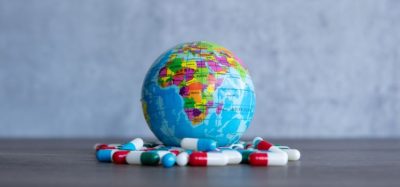COVID-19 Clinical Research Coalition to accelerate coronavirus R&D in resource-poor countries
Posted: 6 April 2020 | Hannah Balfour (European Pharmaceutical Review) | No comments yet
The coalition has been formed to find R&D solutions for low- and middle-income countries to limit the impact of the COVID-19 pandemic in areas with fragile healthcare systems.


An international coalition of health experts, funders and policy makers has been launched to respond to COVID-19 in resource-poor settings. The COVID-19 Clinical Research Coalition was set up to accelerate COVID-19 R&D in areas with fragile healthcare systems, such as Africa, Latin America, Eastern Europe and certain Asian countries.
The coalition brings together an array of health experts, including public-sector research institutes, ministries of health, academia, not-for-profit R&D organisations, non-governmental organisations (NGOs), international organisations and funders all committed to finding COVID-19 research solutions for resource-poor settings.
The coalition authored a comment in the Lancet saying that of the nearly 600 COVID-19 clinical trials registered, very few are planned in resource-poor settings, which the group intends to overcome by sharing their technical expertise and clinical trial capabilities.
According to the coalition, they will enable a co-ordinated approach to clinical testing and R&D, such that data from all regions can be collected, pooled and shared in real-time. They suggest this will help individual countries and the World Health Organization (WHO) to make rapid evidence-based decisions on policies and practice.
“We welcome the launch of this coalition, which takes advantage of existing multinational and multidisciplinary expertise in running clinical trials in resource-poor settings and will help the WHO in its co-ordinating role in the global response to COVID-19,” said Dr Soumya Swaminathan, Chief Scientist at the WHO. “Although the epicentre is today elsewhere, we must prepare now for the consequences of this pandemic in more resource-constrained settings or we stand to lose many more lives.”
In order to join the coalition, members agreed to specific commitments aimed at making treatments available and accessible at affordable prices as soon as possible in resource-poor settings.
Related topics
Clinical Trials, Drug Development, Drug Discovery, Preclinical Research, Research & Development (R&D), Therapeutics, Vaccines, Viruses
Related organisations
COVID-19 Clinical Research Coalition, World Health Organization (WHO)









